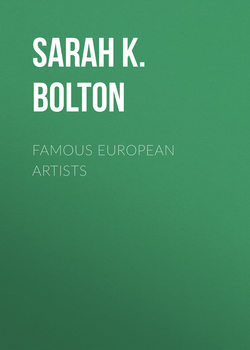Читать книгу Famous European Artists - Sarah K. Bolton - Страница 5
RAPHAEL OF URBINO
Оглавление"In the history of Italian art Raphael stands alone, like Shakespeare in the history of our literature; and he takes the same kind of rank – a superiority not merely of degree, but of quality… His works have been an inexhaustible storehouse of ideas to painters and to poets. Everywhere in art we find his traces. Everywhere we recognize his forms and lines, borrowed or stolen, reproduced, varied, imitated, – never improved.
"Some critic once said, 'Show me any sentiment or feeling in any poet, ancient or modern, and I will show you the same thing either as well or better expressed in Shakespeare.' In the same manner one might say, 'Show me in any painter, ancient or modern, any especial beauty of form, expression, or sentiment, and in some picture, drawing, or painting after Raphael I will show you the same thing as well or better done, and that accomplished which others have only sought or attempted.'
"To complete our idea of this rare union of greatness and versatility as an artist with all that could grace and dignify the man, we must add such personal qualities as very seldom meet in the same individual – a bright, generous, genial, gentle spirit; the most attractive manners, the most winning modesty."
Thus writes Mrs. Jameson of the man of whom Vasari said, "When this noble artist died, well might Painting have departed also, for when he closed his eyes, she too was left, as it were, blind… To him of a truth it is that we owe the possession of invention, coloring, and execution, brought alike, and altogether, to that point of perfection for which few could have dared to hope; nor has any man ever aspired to pass before him."
Raphael of Urbino was born at Colbordolo, a small town in the Duchy of Urbino, April 6, 1483. His father, Giovanni Santi, was a painter of considerable merit, and was possessed also of poetic ability, as he wrote an epic of two hundred and twenty-four pages, in honor of Federigo of Montefeltro, then Duke of Urbino. This duke was a valiant soldier, and a patron of art and literature, who for years kept twenty or thirty persons copying Greek and Latin manuscripts for his library.
